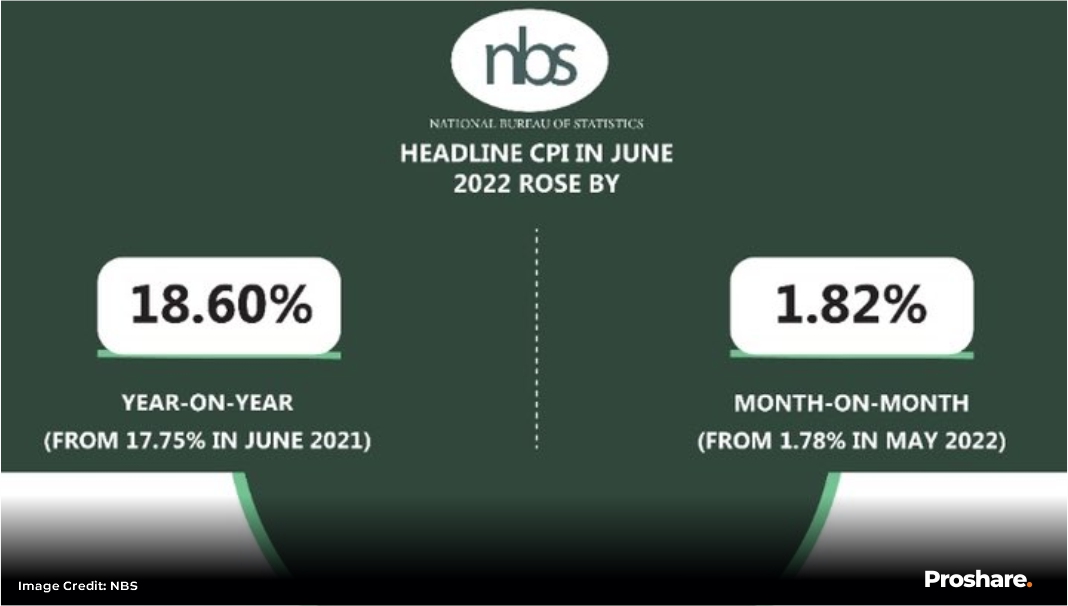Global price level has continued to rise at an alarming rate over the past 10 months. While demand-side factors were the initial drivers of the price surge, the increase in energy prices (fed by rising crude oil and natural gas prices) and higher food prices have fed in a cost-push component. As a result, major global economies have seen inflation rate surge to either multi-decade or record highs. Unfortunately, Nigeria has not been left out of mounting price pressures. In its last inflation report, the National Bureau of Statistics (NBS) reported Nigeria’s inflation rate printed at 18.6%, a five-year high. In addition to the increase in energy and food prices, persistent currency depreciation has worsened the price situation for Nigerian consumers.
Regrettably, the surge in price levels has not been accompanied by increase in consumer income or any security blanket for vulnerable segments of the population. As a result, the recent rhetoric of a "disappearing middle class" in Nigeria has never been truer. Nigeria’s middleclass as defined by the United Nations is the economic strata whose income falls between $10.0-$100.0/day. The African Development Bank (AfDB) places that bracket between $2.0-$20.0/day. However, when we evaluate the average consumer’s sluggish income growth (in the face of improved economic activities post-covid) in the context of a fast-depreciating currency and surging inflation, it becomes clear that Nigeria’s proud middle-class is fast becoming non-existent while many consumers are struggling to keep their heads above the poverty line.
To resolve the situation, urgent focus must be placed on driving an improvement in productive activities of the economy. This can only be achieved by providing an accommodative business environment for business to thrive and encourage investors to take larger bets on critical sectors in the Nigerian economy. This would position industries and the services sector to support job creation and drive increased wages for consumers. We note that failure to arrest the sharply declining standard of living among Nigerians is a recipe for fueling insecurity, lack of access to quality education and healthcare.
 Lagos, NG • GMT +1
Lagos, NG • GMT +1











 267 views
267 views











 Sponsored Ad
Sponsored Ad
 Advertise with Us
Advertise with Us









